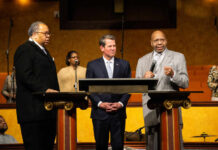The Congressional Insider gives you everything you need to know to stay aware of the latest bills and laws moving through Congress, and to hold our elected officials accountable. With a focus on traditional American values, The Congressional Insider eschews the liberal bias rampant in mainstream news media.
Explore specific legislation and political influences with Insider News. Understand what you need to know to hold politicians accountable with Political Watchdog. Join a community for traditional American values with The Congressional Insider.
Just about everyone on the team here at The Congressional Insider is heavily invested in not just everyday news, but in what’s happening in the political realm. Our writers and journalists have decades of combined experience when it comes to geopolitical coverage, national, state, and local news. We’re looking at the big picture, ranging from Congress to what’s happening with crime on your own streets.
Our editorial team is on the ball as well. They assist our writers with vetting sources, fact-checking their information, and ensuring the news you read is accurate and reliable. We have a zero tolerance policy for unethical behavior, editorialization, and bias.
Journalistic Integrity and Ethics
Each member of our team is expected to adhere to a high standard of journalistic integrity. We will not tolerate unethical behavior. This means maintaining truth and transparency in reporting, avoiding the injection of personal opinion, and steering clear of conflicts of interest. Our team members are required to disclose any potential conflicts and must report objectively.
Learn More






